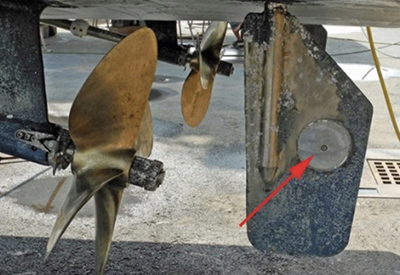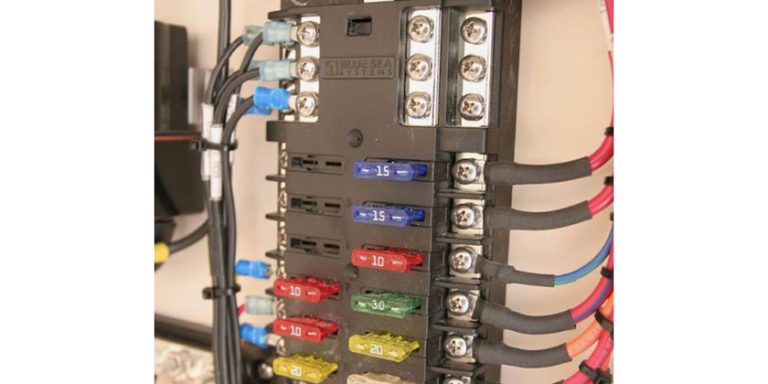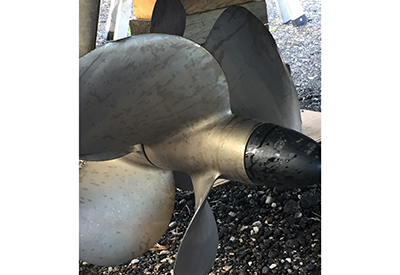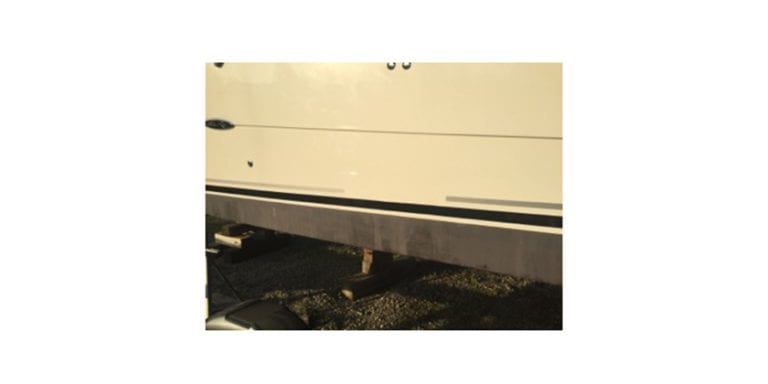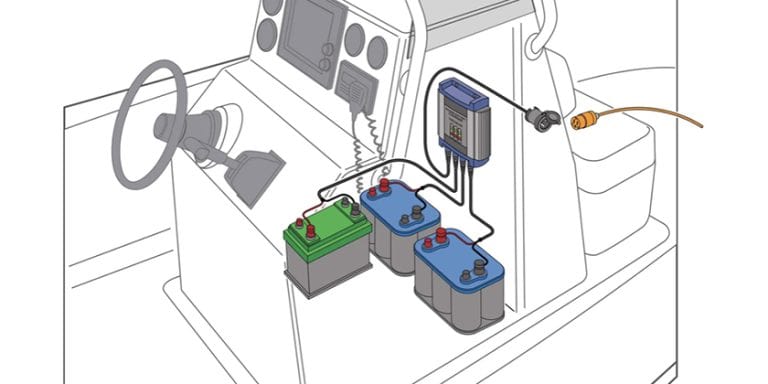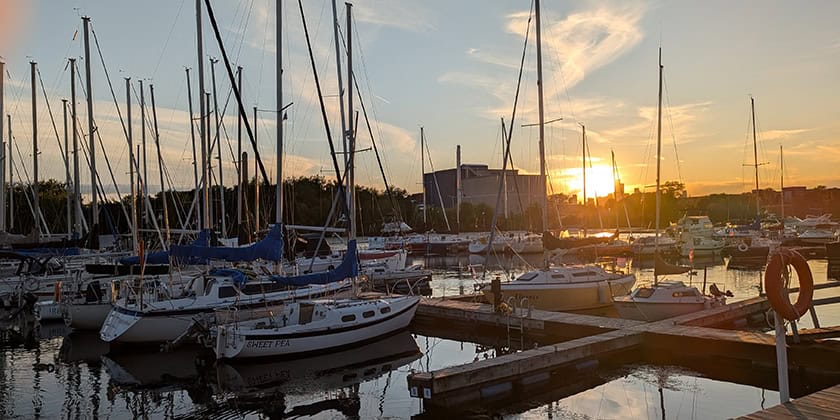Ask Andrew: Engine/gasoline fires and other scares
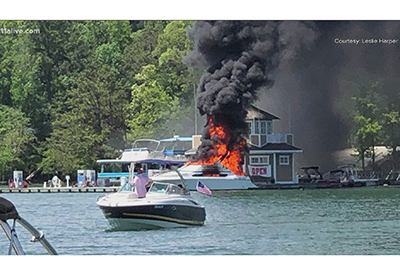
June 10, 2021
Photo Courtesy of Leslie Harper
Boats aren’t inherently combustible. They aren’t firetraps, and they aren’t any more or less dangerous with respect to fire breaking out than an RV, trailer, car or airplane.
But there are certain ingredients that make fires a potential hazard. And because of this, boaters should be aware of that potential, and take steps to minimize the chances of fire breaking out.
To break things down simply, there are three main causes of fire aboard (with many permutations of each). This time, we look engine fires and heat issues.
It seems like madness sometimes to combine the volume and complexity of electrical systems onboard modern boats with gasoline.
Gasoline vapours (the fumes coming off of the liquid) are extremely flammable. If a spark comes in contact with gasoline vapour, it will explode. Gasoline vapour is denser than air so it will settle in the bilge area of any compartment where it is present.
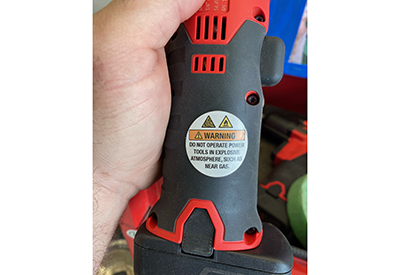 So here are rules to keep us safe:
So here are rules to keep us safe:
a) Always keep gasoline in an approved container: fuel tank, remote tanks and jerry cans should be approved and in good working order
b) Fuel lines and connections should be of the appropriate grade. Hose clamps should be secure. Check fuel lines regularly for wear and replace as necessary
c) Always check to make sure that your blowers operate effectively, and that the blower hoses are positioned so that they pick up vapours from the bilge area, and blow those vapours out of the boat and overboard. If the blower hoses are damaged, replace them.
d) Ensure that any appliances that are mounted, installed or used (even temporarily) in an area where gasoline is present are ‘ignition protected’: This means that the appliance doesn’t give off any type of spark that could ignite fumes. This includes water heaters, battery chargers, engine mounted ignition coils, trim pumps, blowers, bilge pumps, water pumps, etc.
e) Ensure that all appliances are turned OFF before connecting a battery. If an appliance is able to operate, and the wiring is connected to the battery directly, the battery will often spark as the wire comes into contact with the battery post.
f) Ensure that batteries are protected with boots over the posts, and/or a battery box cover. This prevents accidental contact between the positive and negative posts
g) Be highly cautious when fueling: Ensure that all persons are off the boat during fueling, and ensure that all electrical appliances are turned off during fueling. After fueling, allow any gas/fumes to settle, and run the blower for a minimum of five minutes before starting the engine.
h) Ensure that batteries are well ventilated: during charging operations, batteries give off hydrogen gas, which is highly explosive.
i) For the same reason, ensure that holding tanks are secure and appropriately ventilated: holding tanks give off methane gas
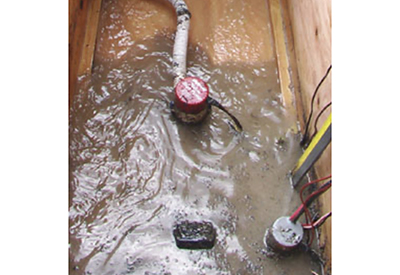 Heat/combustion fires
Heat/combustion fires
Running engines create quite a bit of heat. They run in enclosed spaces, around a lot of combustible materials. To make matters worse, we often store excess supplies in the engine compartment: oil, cleaners, rags, bilge water, etc.
Engines themselves have rubber belts, plastic covers and nylon ties which melt and catch fire if overheated.
Many modern boats have fire suppression ports built into the engine room – in the event of a sever overheat, a fire extinguisher can be released into the engine compartment without opening a door (allowing oxygen to feed the flames!).
Keep engine spaces clear and clean. Remove oils and rags and clean up any spills. Keep an eye on the engine’s temperature gauge when underway, and shut the engine down if it begins to overheat.
Finally – in the event that a fire does occur aboard, a few things to remember:
1) Keep fire extinguishers handy, well maintained and easily accessible.
2) Keep carbon monoxide a smoke detectors active and well maintained
3) Plan your escape, and make sure that everyone aboard knows how/where to go in the event of fire
As always: If you aren’t sure, ask a qualified tech to offer some advice. If you’re unsure of how to complete an installation, or questioning the safety of any of your systems…don’t wait. Book a tech to perform a review or repair in order to keep you, your family and your guests safe and sound.
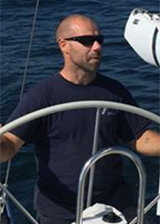 Andrew McDonald is the owner of Lakeside Marine Services – a boat repair/maintenance firm based in Toronto. Andrew has worked in the marine industry for 12 years and is a graduate of the Georgian College ‘Mechanical Techniques – Marine Engine Mechanic’ program.
Andrew McDonald is the owner of Lakeside Marine Services – a boat repair/maintenance firm based in Toronto. Andrew has worked in the marine industry for 12 years and is a graduate of the Georgian College ‘Mechanical Techniques – Marine Engine Mechanic’ program.

